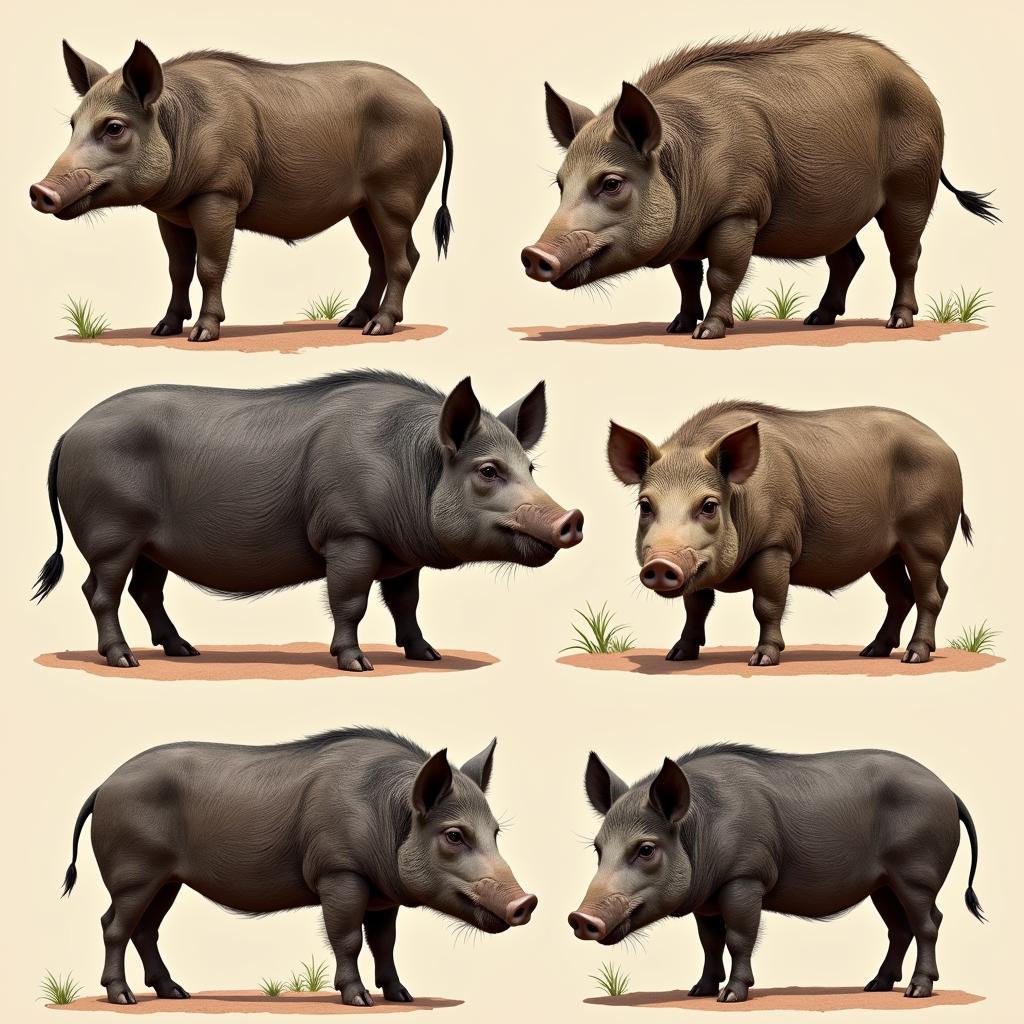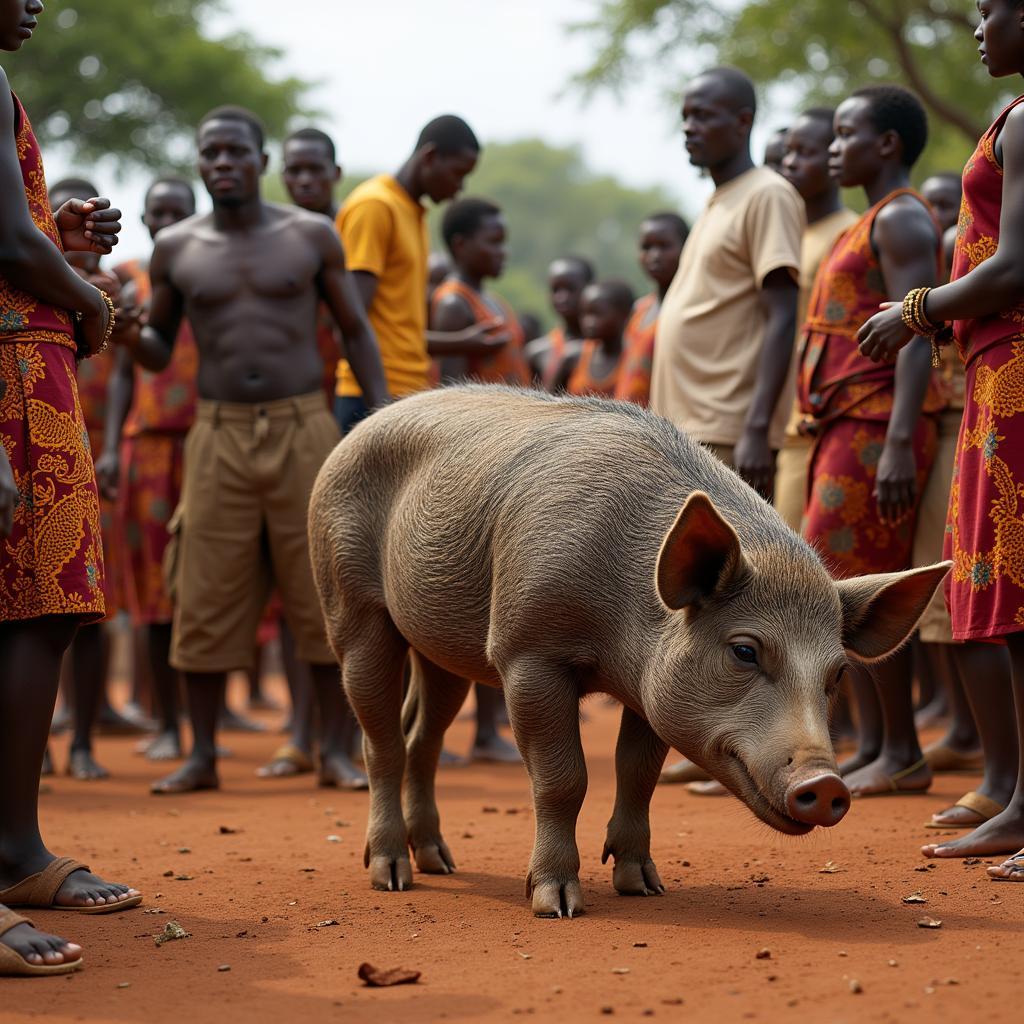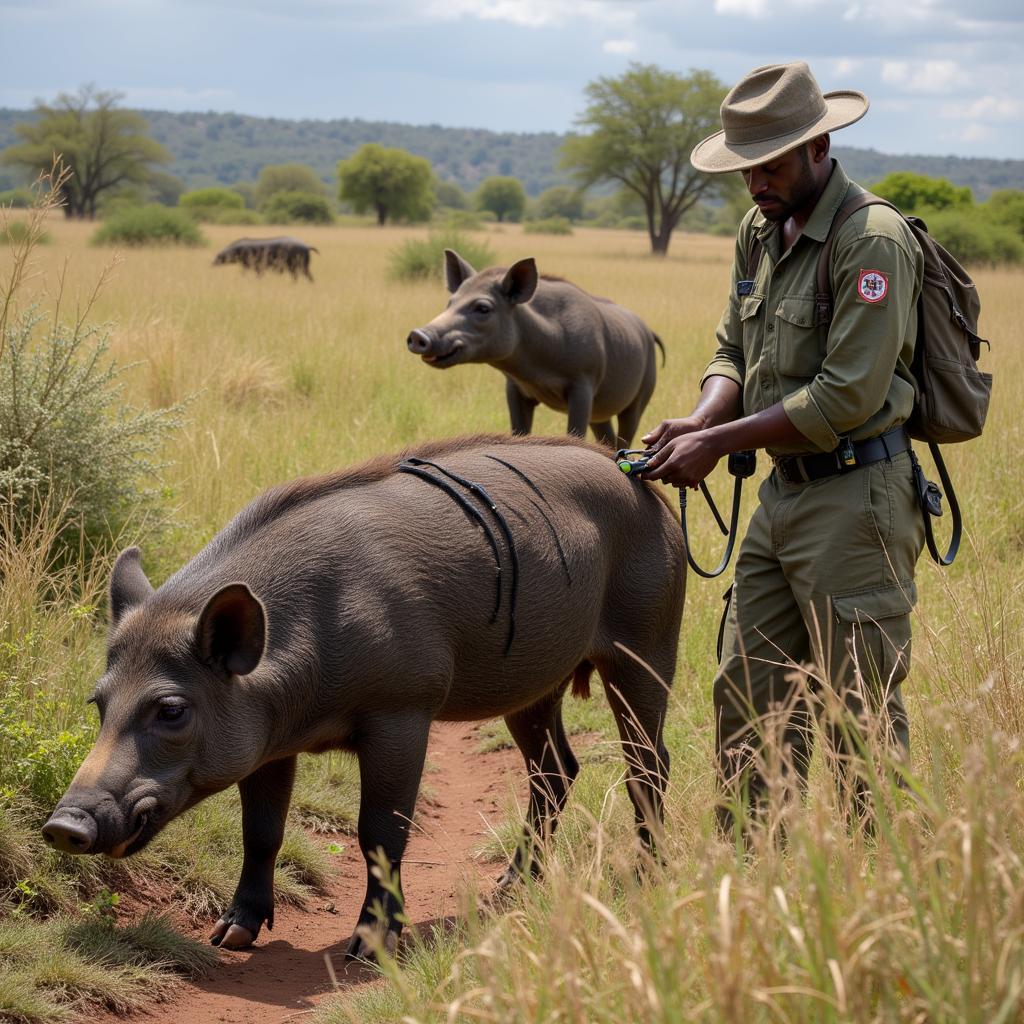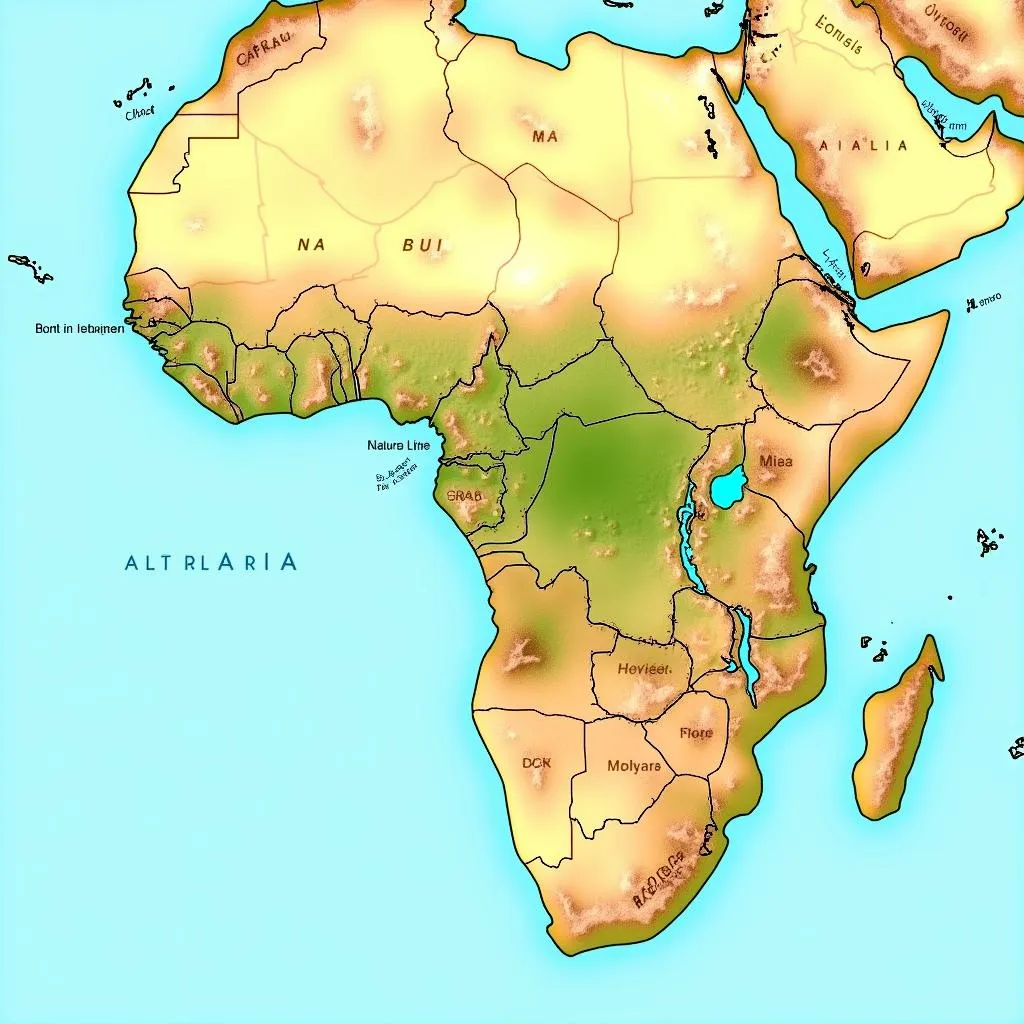Unveiling the African Pig: Beyond the Sty
The African Pig, often overlooked in the grand tapestry of African wildlife, plays a surprisingly significant role in the continent’s ecosystem and cultural landscape. From their diverse breeds to their cultural significance, understanding the African pig reveals a fascinating perspective on African Life.
A Diverse Family Tree: Exploring Breeds of African Pigs
While the term “African pig” might conjure a single image, the reality is far more diverse. Africa is home to a variety of pig breeds, each with unique characteristics and adaptations. Some of the most notable include:
- Bushpig: Known for their reddish-brown coats and nocturnal habits, bushpigs are highly adaptable and found across sub-Saharan Africa.
- Red River Hog: These striking creatures, with their long, reddish fur and white facial markings, prefer the wetter habitats of West and Central Africa.
- Giant Forest Hog: True to their name, these are the largest wild pig species, inhabiting the rainforests of Central and West Africa.
- Domesticated Breeds: Beyond their wild counterparts, domesticated pigs, introduced centuries ago, play a vital role in agriculture and food security across the continent.
 African Pig Breeds: A Visual Guide
African Pig Breeds: A Visual Guide
Beyond the Plate: Cultural Significance of the African Pig
For many communities across Africa, the significance of pigs extends far beyond their role as livestock. They feature prominently in cultural traditions, beliefs, and even spiritual practices:
- Traditional Ceremonies: In some cultures, pigs are integral to ceremonies marking important life events such as births, marriages, and funerals. They often symbolize prosperity and good fortune.
- Folklore and Storytelling: African folklore is rich with tales featuring pigs, often portraying them as clever tricksters or symbols of resilience.
- Spiritual Beliefs: In certain belief systems, pigs are seen as having a spiritual connection to the land and ancestors, further highlighting their significance beyond their physical presence.
 African Pig in Traditional Ceremony
African Pig in Traditional Ceremony
Navigating Challenges: Conservation and Coexistence
Despite their adaptability and cultural importance, African pig populations face growing challenges:
- Habitat Loss: As human populations grow and land is converted for agriculture and other uses, the natural habitats of wild pig species are increasingly under threat.
- Human-Wildlife Conflict: The expansion of human settlements into pig territories can lead to conflict, particularly when crops are raided or livestock threatened.
- Disease Transmission: Domesticated pigs can be susceptible to diseases that can spread to wild populations, further endangering their well-being.
Addressing these challenges requires a multifaceted approach:
- Promoting Sustainable Land Management: Implementing practices that balance human needs with the preservation of natural habitats is crucial for the long-term survival of African pigs.
- Mitigating Human-Wildlife Conflict: Finding ways to reduce encounters and minimize damage caused by pigs, such as effective fencing or alternative crop protection methods, is essential.
- Disease Surveillance and Control: Implementing measures to prevent and control disease outbreaks, particularly in domesticated pig populations, is vital for protecting both wild and domestic animals.
 African Pig Conservation Efforts
African Pig Conservation Efforts
Understanding the African Pig: A Glimpse into a Rich Tapestry
Exploring the world of African pigs reveals a fascinating blend of ecological diversity, cultural significance, and conservation challenges. By appreciating their role in the African landscape and supporting efforts to ensure their well-being, we contribute to the preservation of a vibrant part of Africa’s natural and cultural heritage.
FAQs about African Pigs
1. Are African pigs dangerous?
While generally peaceful, wild pigs can be dangerous if they feel threatened, especially mothers protecting their young. It’s crucial to observe them from a safe distance and avoid approaching them in the wild.
2. What is the role of pigs in African agriculture?
Domesticated pigs are a vital source of protein and income for many communities, playing a significant role in food security and livelihoods.
3. How can I learn more about supporting African pig conservation?
Several organizations are dedicated to protecting African pigs and their habitats. Researching and supporting their work through donations or volunteering can make a difference.
Delve Deeper into African Life
Interested in learning more about the fascinating world of African culture and wildlife? Explore these related articles:
Need Help? Contact Us:
- Phone: +255768904061
- Email: kaka.mag@gmail.com
- Address: Mbarali DC Mawindi, Kangaga, Tanzania.
Our customer service team is available 24/7 to assist you.

